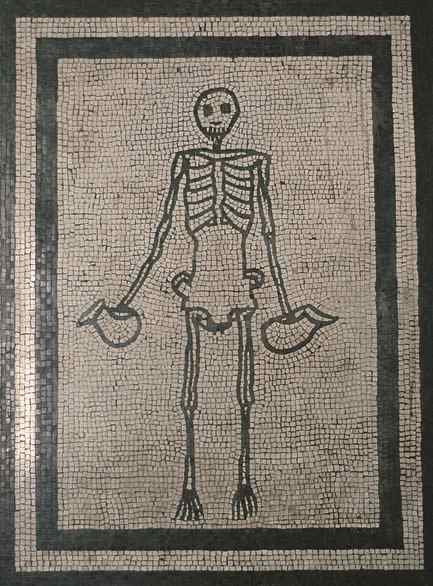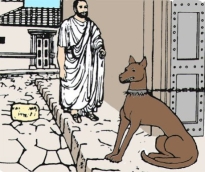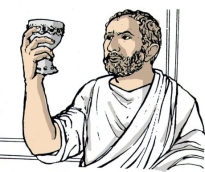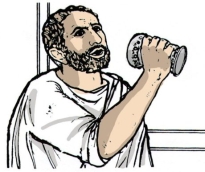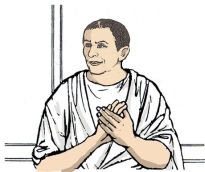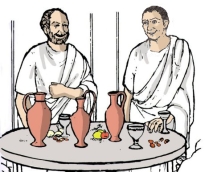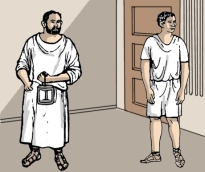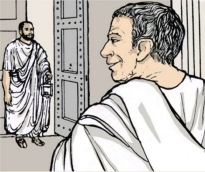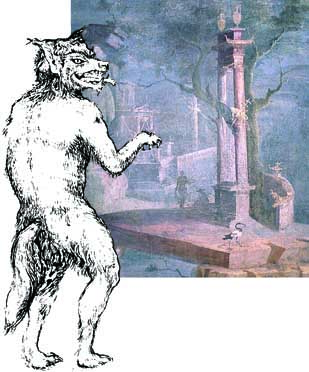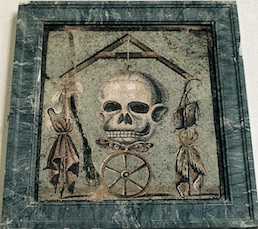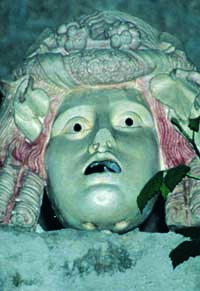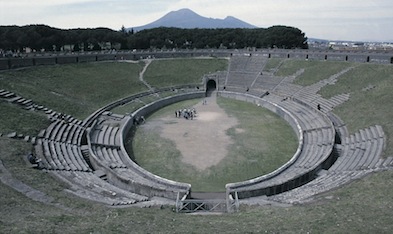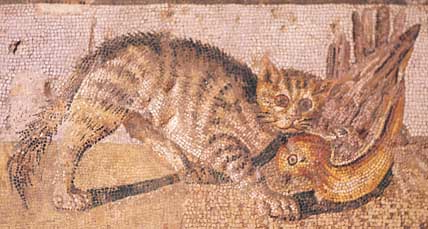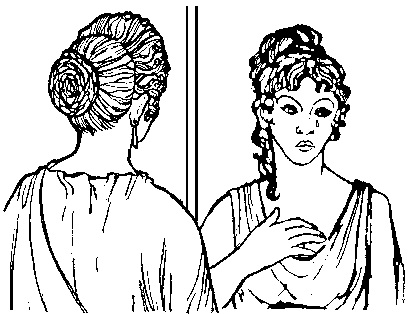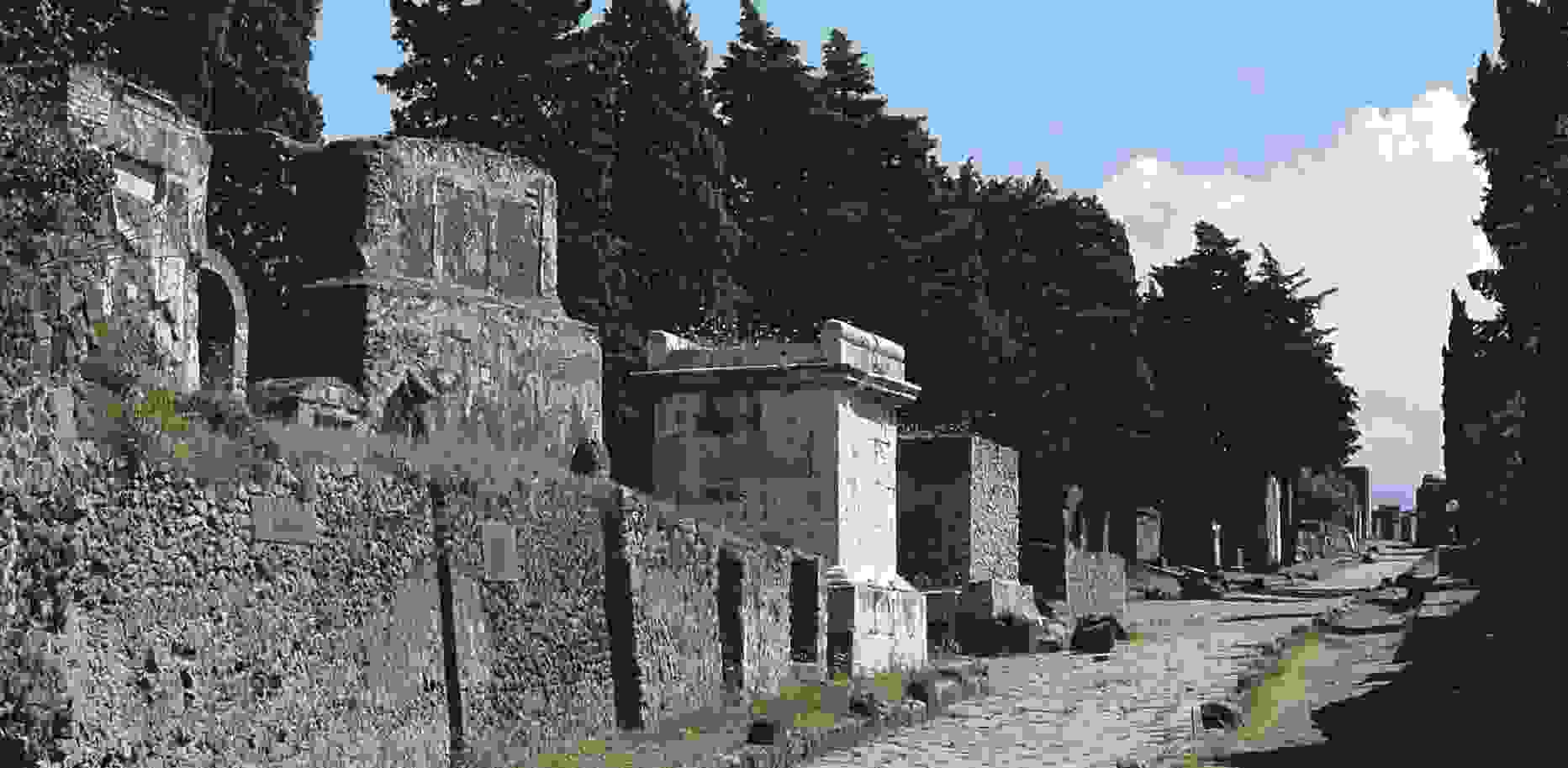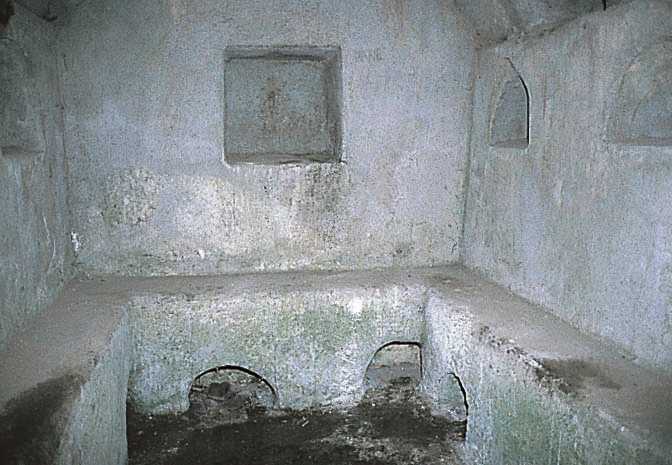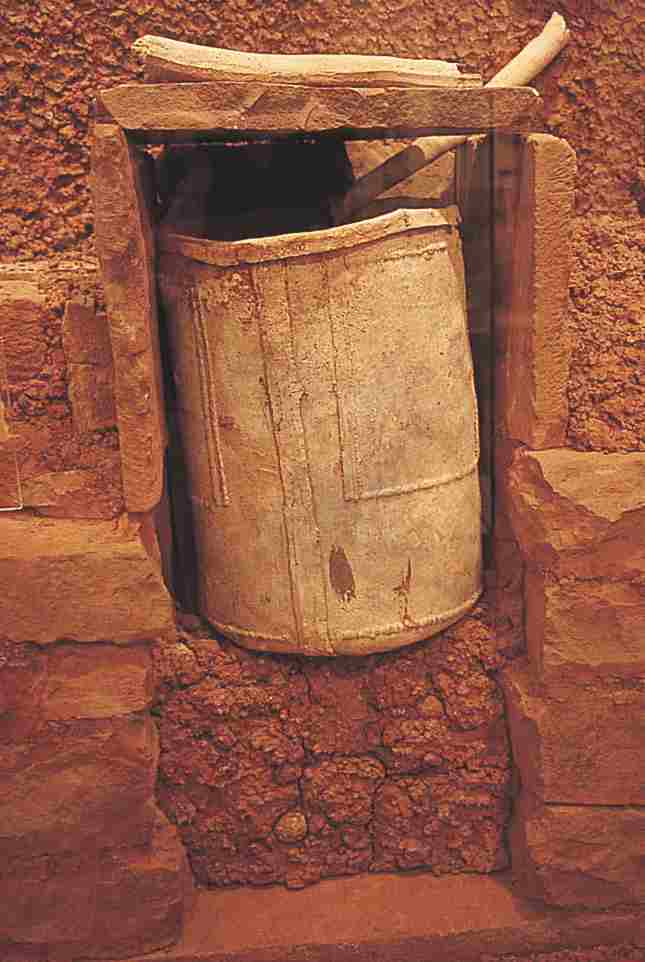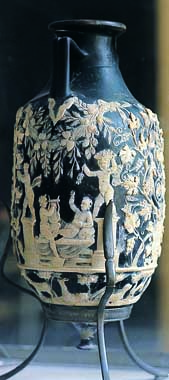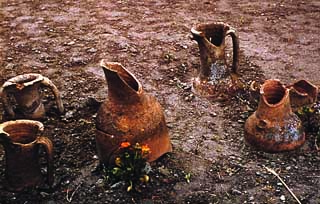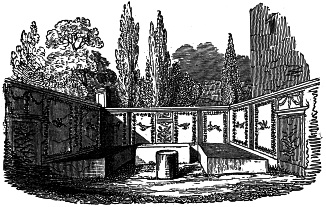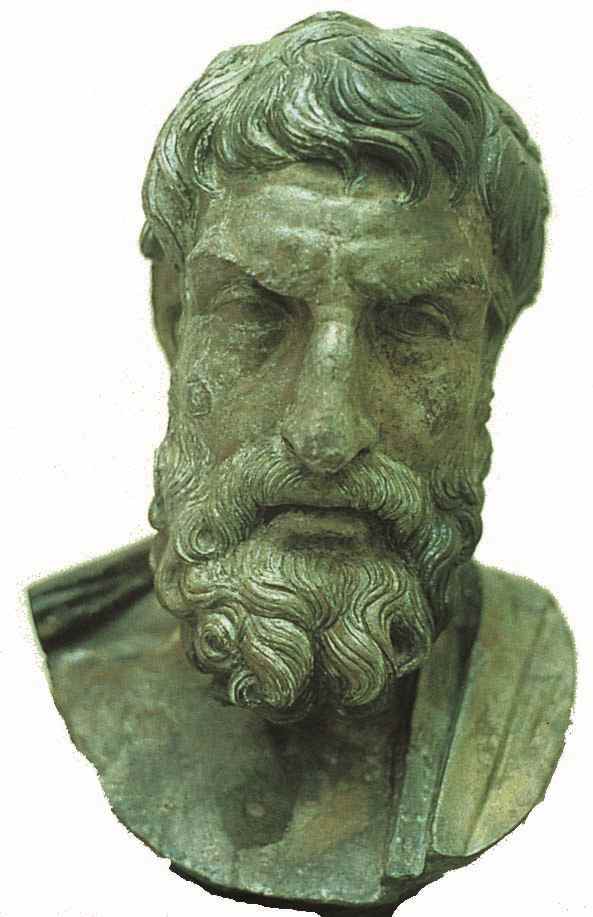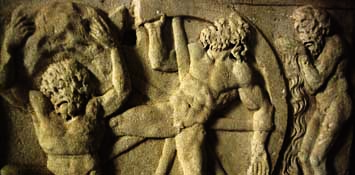amīcī coquum laudāvērunt, quod cēna erat optima.
postquam omnēs cēnāvērunt, Caecilius clāmāvit, “ubi est
Decēns? Decēns nōn adest.” tum Caecilius Clēmentem ē vīllā mīsit.
servus Decentem per urbem quaesīvit.5
postquam servus ē vīllā discessit, Fēlīx pōculum hausit. tum
lībertus fābulam mīrābilem nārrāvit:
“ōlim amīcus meus ex urbe discēdēbat. nox erat, sed lūna plēna
lūcēbat. amīcus per viam festīnābat, ubi silva erat, et subitō
centuriōnem cōnspexit. amīcus meus centuriōnem salūtāvit.10
centuriō tamen nihil dīxit. tum centuriō tunicam dēposuit. ecce!
centuriō ēvānuit. ingēns lupus subitō appāruit. amīcus meus valdē
timēbat. ingēns lupus ululāvit et ad silvam festīnāvit. tunica in viā
iacēbat. amīcus tunicam cautē īnspexit. ecce! tunica erat lapidea.
tum amīcus rem intellēxit. ille centuriō erat versipellis.”15
